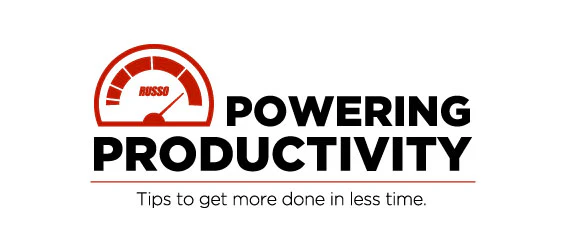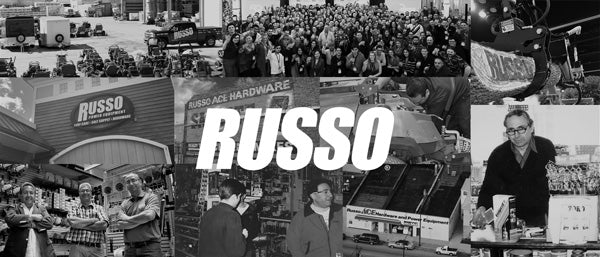·

Equipos para césped de primavera: Mantenga a sus equipos seguros con estos 9 consejos - Inglés
Suministrado por OPEI (Outdoor Power Equipment Institute)
Se acerca la primavera y los contratistas comerciales de paisajismo se preparan para la temporada alta. El Instituto de Equipos Eléctricos para Exteriores (OPEI), asociación comercial internacional que representa a fabricantes y proveedores de equipos eléctricos para exteriores, vehículos utilitarios, carros de golf y vehículos de transporte personal, recuerda a los paisajistas que deben tener en cuenta la seguridad al trabajar al aire libre.
“Antes de enviar a sus equipos a usar una cortadora de césped, una recortadora, un soplador, una hidrolavadora, una motosierra, una podadora, un generador portátil u otro equipo eléctrico para exteriores esta temporada, es importante que prioricen la seguridad”, dijo Kris Kiser, presidente de OPEI. “Las empresas de paisajismo tienen una temporada muy ocupada por delante, pero también necesitan dedicar tiempo al mantenimiento para garantizar que sus equipos funcionen de forma segura y estén listos para trabajar durante toda la temporada”.
A continuación se ofrecen algunos consejos para garantizar la seguridad de los equipos de paisajismo:
- Lea el manual del propietario. Se debe recordar a cada miembro del equipo que siga todas las instrucciones del equipo motorizado para exteriores y que se familiarice con los controles. Revise cómo encender, apagar y usar el equipo de forma segura, especialmente con los nuevos miembros del equipo. Los manuales están disponibles en línea y en varios idiomas para garantizar que todos trabajen con las mismas instrucciones.
- Inspeccione el equipo. Revise el filtro de aire, el nivel de aceite y el tanque de gasolina. También revise si hay correas sueltas o piezas faltantes o dañadas. Asegúrese de que todas las protecciones de seguridad estén instaladas. Reemplace las piezas necesarias o lleve el equipo a un técnico calificado para su reparación. Si utiliza equipos eléctricos, asegúrese de que las baterías estén en buen estado y no presenten grietas ni daños.
- Asegúrese de que todos los dispositivos de seguridad funcionen correctamente. No desactive ni modifique el equipo de seguridad instalado por el fabricante. Asegúrese de revisar esto con su equipo de trabajo y de revisar el equipo al regresar del lugar de trabajo.
-
Revise el equipo con sus equipos de trabajo antes de que comience la temporada.
Asegúrese de que todos sus trabajadores comprendan las características de seguridad del equipo que utilizan y de que sigan las directrices del fabricante y los mensajes del producto para una operación segura. Realice inspecciones de seguridad puntuales en las obras e incorpórelas en su rutina matutina. - Proteja su energía usando solo combustible E10 o inferior en equipos eléctricos de exterior a gasolina. Con los combustibles actuales con mayor contenido de etanol, la mayoría de los fabricantes recomiendan usar un estabilizador de combustible, especialmente si no usa toda la gasolina inmediatamente. Algunas gasolineras pueden ofrecer gasolina con 15% de etanol (E15) o mezclas con mayor contenido de etanol, pero cualquier combustible con más del 10% de etanol puede dañar y es ilegal usarlo en equipos de motor pequeño no diseñados para ello.
- Almacene el combustible de forma segura. Etiquete el bidón de combustible con la fecha de compra y el contenido de etanol. Nunca vierta gasolina vieja en el equipo eléctrico para exteriores. Si desconoce la fecha de compra, deseche el combustible del bidón de forma segura y compre combustible nuevo. Guarde siempre el combustible fuera del alcance de los niños y las mascotas, en recipientes aprobados. El combustible nunca debe permanecer en el tanque de gasolina durante más de 30 días, ya que podría causar problemas de arranque o de funcionamiento, o dañar el equipo.
- Para equipos alimentados por batería, recargue el equipo únicamente con el cargador especificado por el fabricante. Un cargador compatible con un tipo de batería puede suponer un riesgo de incendio al usarse con otro. Siga todas las instrucciones de carga y no cargue la batería ni la herramienta fuera del rango de temperatura especificado en las instrucciones.
- Guarde las baterías de forma segura. Cuando no utilice la batería, manténgala alejada de otros objetos metálicos, como clips, monedas, llaves, clavos, tornillos u otros objetos metálicos pequeños que puedan conectar una terminal con otra. Guardar las terminales de la batería juntas puede causar quemaduras o un incendio.
- Limpie su equipo y guárdelo en un lugar seco. Elimine la suciedad, el aceite o la hierba. Un equipo limpio funcionará con mayor eficiencia y durará más. Nunca guarde su equipo en un lugar húmedo o mojado.
Para obtener más información, visite www.opei.org . Para más información sobre el repostaje seguro, visite www.LookBeforeYouPump.com .
Acerca de OPEI. OPEI es una asociación comercial internacional que representa a fabricantes y proveedores de equipos eléctricos, motores pequeños, sistemas de energía a batería, generadores portátiles, vehículos utilitarios y de transporte personal, y carros de golf. OPEI es la voz de la industria y una Organización de Desarrollo de Normas reconocida por el Instituto Nacional Estadounidense de Normas (ANSI). Opera internacionalmente a través de la Organización Internacional de Normalización (ISO) y la Comisión Electrotécnica Internacional (IEC) en el desarrollo de normas de seguridad y rendimiento. OPEI es propietaria de Equip Exposition, la exposición internacional de paisajismo, vida al aire libre y equipos, y administra la Fundación TurfMutt, que dirige el programa de educación ambiental TurfMutt. OPEI-Canadá representa a sus miembros en diversos temas, como el reciclaje, las emisiones y otros avances regulatorios en las provincias canadienses.

Impulsando la productividad
¡Nuestro blog impulsa su productividad a través de reseñas de nuevos productos, noticias de la industria, sugerencias y trucos, consejos comerciales y más!

Noticias Ruso
Manténgase actualizado sobre las últimas novedades de la empresa y conozca más sobre nuestra historia.

Dejar un comentario